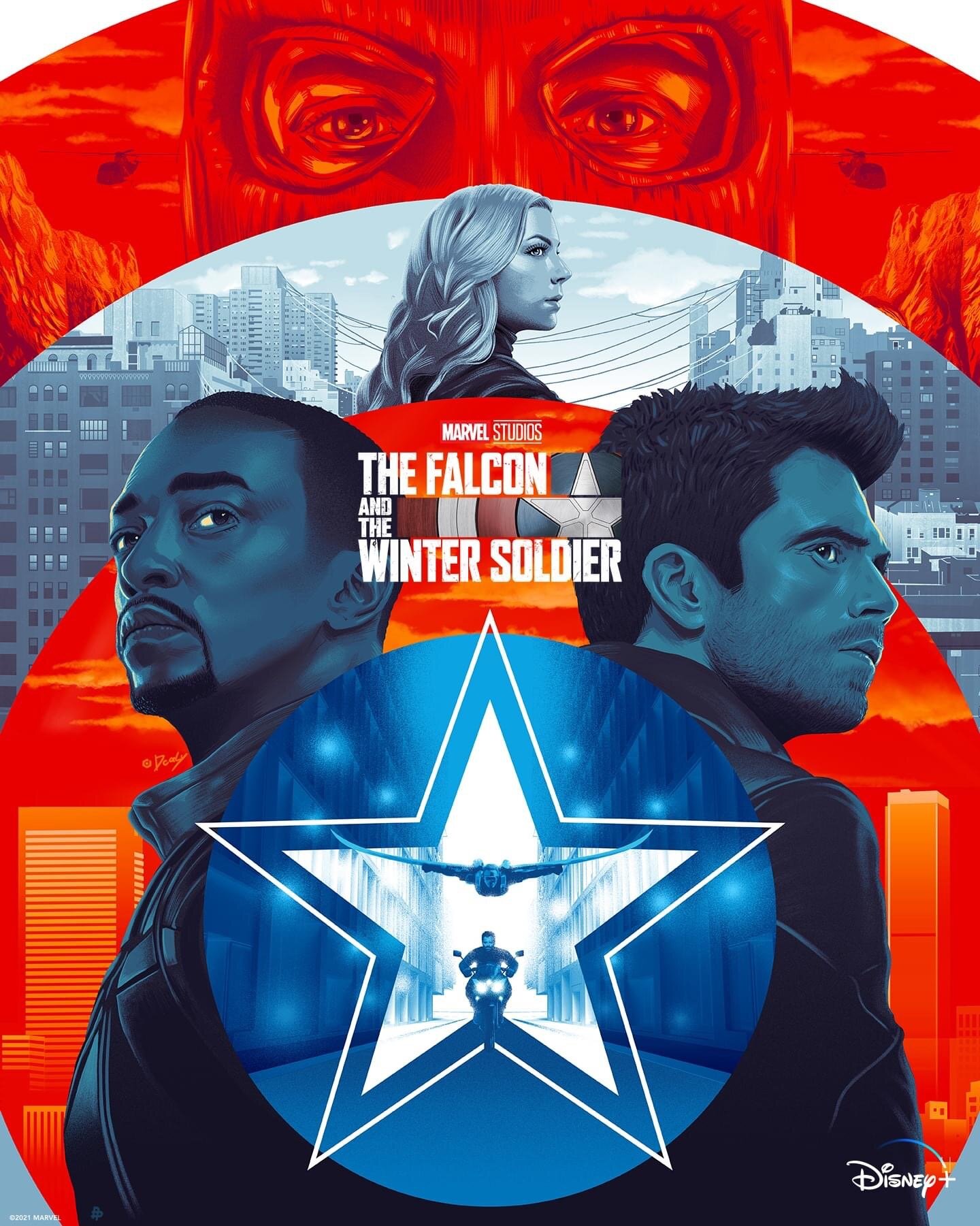Small screen superheroes craft much appreciated MCU morality tale
In a franchise as expansive and well-known as the Marvel Cinematic Universe [MCU], it comes as a surprise to no one that their films aren’t always the most nuanced or thorough when dealing with relevant, real-world issues. Seems about time that the MCU’s newest Disney+ series The Falcon and the Winter Soldier be the first to tackle themes like racism, discrimination, and imperialism with the depth that these issues truly deserve.
The Captain America trilogy, which this show is essentially a follow-up to, is no stranger to touchy issues. The First Avenger is a story about the horrors of war and the sacrifices of soldiers juxtaposed against the blind optimism and patriotism of 1940s America. The Winter Soldier is about government corruption and how veterans deal with trauma. Civil War explores how the law doesn’t necessarily make things right, and how breaking the law doesn’t always mean you’re a bad person.
The series has the look and feel of a full-fledged Marvel film with high production value and impressive CGI that only Disney could produce. The fight sequences are expertly choreographed, and they take full advantage of Sam’s (Anthony Mackie, Altered Carbon) and Bucky’s (Sebastian Stan, The Devil All the Time) unique power sets in new and exciting ways. It feels just like watching a really long movie, and yet somehow it remains captivating the whole way through. The series toes the line between just enough and not enough fanservice, bringing back several fan-favorite characters such as Baron Zemo (Daniel Brühl, The Alienist) and Sharon Carter (Emily VanCamp, Revenge), using them and their abilities in new and different ways.
Zemo especially seems to have become a fan-favorite. His character seems to follow in the great tradition of ‘reformed’ Marvel villains turned quirky sidekicks like Loki, or the titular Winter Soldier. The spice that he brings to the story can’t be denied, even if he does have a penchant for rather violent methods of dealing with his enemies.
Of course, the show’s leads, Sam Wilson and Bucky Barnes, who are the Falcon and the Winter Soldier respectively, are not to be glossed over. Stan and Mackie are at the best that they’ve ever been during their run in the MCU, perfectly portraying the reluctant friendship of these two heroes and swapping gracefully between hard-hitting emotional moments and lighthearted witty banter. Fans of the duo finally get to see their friendship fully explored, beyond the brief interactions they’ve shared together in previous films.
Through the character of Sam Wilson, the show dives into themes of police brutality and racial discrimination. He is shown as being discriminated against and talked down to, and perhaps the most interesting part is how he is suddenly treated completely differently once they realize he is an Avenger. In one eerily realistic scene, two police officers patrolling in a low-income neighborhood approach Sam out of nowhere and start harassing him and asking for an ID. When he doesn’t have one, they arrest him.
Additionally, the character of Isaiah (Carl Lumbly, Supergirl) is a black super-soldier who was experimented on and tortured by the US Government. It’s more important now than ever to address issues regarding racial discrimination, and portray them on screen. The average viewer might find it unnecessary, but for a person of color watching, it’s incredibly significant for this huge franchise to be tackling such tough issues.
However, the show doesn’t only tackle race, but also trauma and the healing process through the character of Bucky Barnes. Bucky, who for years was brainwashed and controlled by the evil organization Hydra, now comes to terms with all of the horrible things he was forced to do, and begins to make amends: not only with the people he hurt, but also with himself. Learning the lesson that every abuse survivor struggles to accept: It’s not your fault. Throughout the course of the series, he learns to move on and grow, even displaying some moments of genuine happiness that fans of his character have longed to see for quite some time now. Bucky also attends therapy, normalizing the struggles and the process that many veterans face when dealing with PTSD and trauma.
John Walker (Wyatt Russell, Overlord), the government-aligned replacement Captain America, is a stellar villain, appearing relatable and noble at first, but revealing his true nature as the story goes on, juxtaposing his violent, self-centered ways against the chivalry and selflessness of his predecessor Steve Rogers (Chris Evans). He perfectly represents the horrors of American history and hypocrisy.
The Falcon and the Winter Soldier is an unanticipated, bold step for Marvel, but one that feels like a natural progression of the scope of the MCU. After cosmic, universe-ending battles and Endgame-style crossovers, it seems only natural that the franchise would return to its roots for a while and tackle some smaller scale issues that hit closer to home for viewers. Overall, the series is another high-quality Marvel production, with drama, suspense, action, humor, wit, and heart, one that will surely be remembered as a fan-favorite for years to come.
Falcon and the Winter Soldier is a magnificent return to form for Marvel, featuring a distinctly fresh coat of paint, with a story and message that is needed now more than ever.
Grade: A+
By Bailey Staerkel
April 30, 2021
Oshkosh West Index Volume 117 Issue 7

